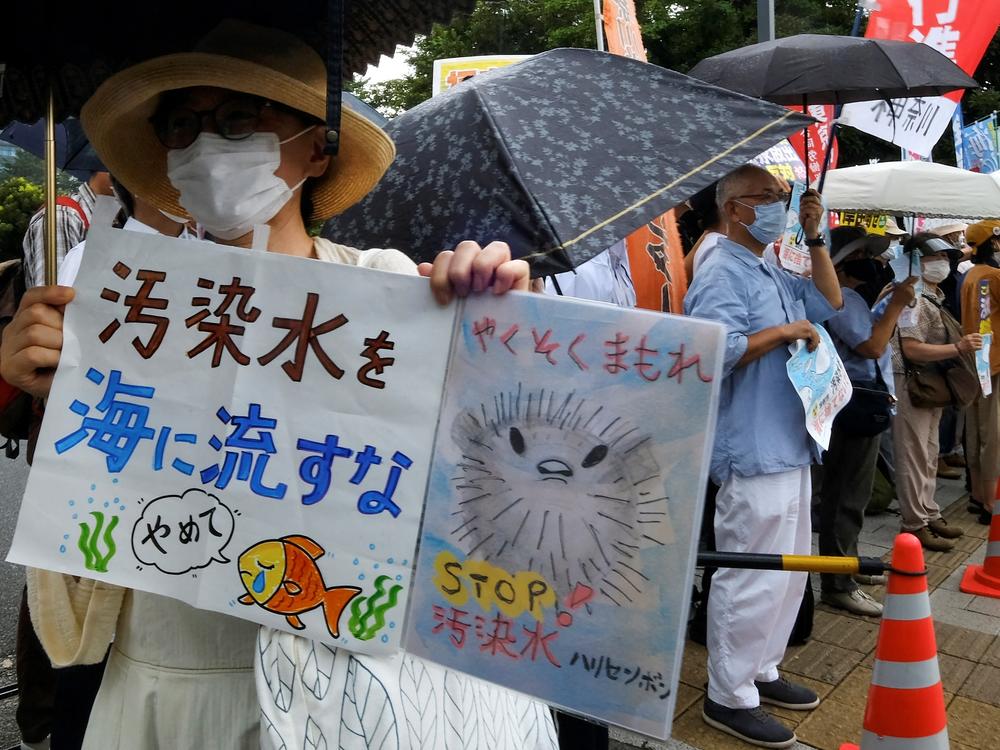Section Branding
Header Content
Japan to release treated water from Fukushima nuclear plant later this week
Primary Content
Updated August 22, 2023 at 5:46 PM ET
SEOUL, South Korea – Japan will begin releasing over a million metric tons of treated radioactive water from the damaged Fukushima nuclear plant into the Pacific Ocean on Thursday, over the objections of local fishermen, and the government of neighboring China.
Prime Minister Fumio Kishida made the announcement after meeting with his cabinet. The plan to release the water was formulated two years ago. Water will be released through an underground tunnel beginning Thursday, weather conditions permitting, Kishida said.
He added that the government has done everything it to ensure public safety, maintain transparency regarding the release, and protect the reputation of local fisheries.
The water was used to cool nuclear fuel rods at the Fukushima plant, which suffered meltdowns after a massive earthquake and tsunami in 2011.
The water has been stored in giant tanks since then, but the plant is nearing capacity, and the government says the water needs to be released in order to decommission the damaged plant, a process which will take decades.
The government says the water has been treated to remove radioactive material, with the exception of tritium, which has been diluted to one fortieth of Japan's safety standards. The International Atomic Energy Agency says the government's plan meets global safety standards.
On Monday, Kishida met with representatives of local fishermen, in a last-ditch bid to win their approval. The representatives continue to oppose the plan, and argue that, regardless of the science, consumers will not buy their catch.
Japan is also wary of allowing the water release issue to undermine a fragile rapprochement under way with neighboring South Korea.
The South Korean government has approved of Japan's plan, but opposition politicians say they will file a complaint with the United Nations Human Rights Council, because they claim the release violates Japan's international agreements. Some South Korean consumers are already avoiding Japanese seafood.
Copyright 2023 NPR. To see more, visit https://www.npr.org.
Correction
A previous version of this story incorrectly said water was used to heat nuclear fuel rods at the Fukushima plant. The water was used to cool them.

